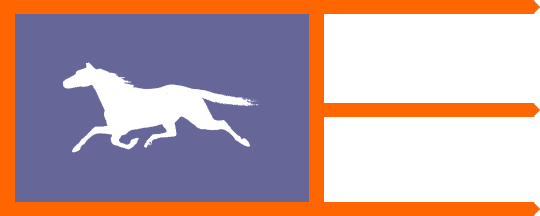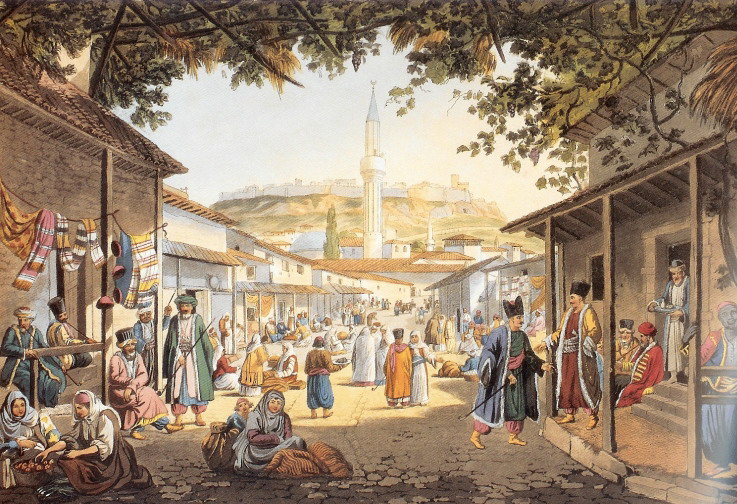
The Beylik of Sarkel
Sarkıl'ın Beylik
Form of Government
Electorate Semi-Monarchy
The governemnt is headed by a monarch called the Bey. The Bey is kept in check by a small team of advisors, and a much larger group of elctorates who meet when a new law has been passed to determine whether or not it is in the best interests of the Sarkelese People. The Advisors are comprised solely of members of the nobility while the Electorates are selected among the common people via voting. In order for the Bey's descisions to be overturned, they need 5/7 Advisors or 60/100 Electorates.
Location on Map Desired:
WIP
Capital
Çavus
Important Settlements
Qarluk - Qarluk is the 2nd largest city in the region, still within the central portion of the city, but much more south west than Çavus.
Sarkel - The original captial of the country, it has evolved much from a simple nomads camp into a major city of agriculture. It is named after its massive white cliffs, the name Sarkel meaning "The White House" in Sarkelese. Sarkel is primarily agricultural, but there is a significant industrial sector beginning to rise up to produce farm and livestock equiptment. Sarkel is close to the eastern border, in a flat, grassy area with some bluffs and cliffs to the north of it.
Gabağat - A smaller city that sprung up in the far north of the country to aid in the trade routes. It also has a good deal of military stationed there to fend off any kind of attempt to invade via the semi neglect northern provinces.
Description:
Sarkel is a nation that was founded by a strange invasion. Not so much an invasion as a migration, that of a far eastern nomad people called the Chagati. Fleeing from a disaster in their homelands, the Chagati were able to easily overrun and conquer a territory inhabited by a now extinct people known as the Rumi. The Rumi themselves were little more than barbarians to many, and though their lack of unity and technological backwardsness, the horse riding Chagati were able to settle into their new home with little to no effort. Settling and centering around the white cliffs that they came to call the Sarkeller, or the white houses, the Chagati would come to identify themselves as the people of the Sarkeller, and later simply the people of Sarkel. It took a long while before the people became exposed to the native people of Edoniras, and slowly began to transition from their traditional nomadic way of life into the city dwelling ways in the middle of the Medieval years. With their traditions of Iron Working, Black Smithing, and Horsemanship, they were able to hold their own and survive in an unfamiliar land, eventually becoming as much a part of the land as any native people.
Sarkelese is unrelated to any of the native languages of Edoniras, coming from the far east (It is represented by Turkish and sometimes other Turkic Languages for Dialects). Their religion is also unique, being a very animistic religion centered around the Shaman and the Horse, with the sky as the most holy of all things.
Phenotypically they are different as well, though mixing with natives has made their more odd traits less common. The average male and female look as follows.
Their religion has no concept of a moral code, and many who encounter the Sarkelese take note of their brutality in war, with a military record noting " They do not fight for religion nor for interpretation of Scripture nor for sovereignty nor for taxes nor for patriotism nor for jealousy, nor for defense of their home, nor for wealth, but only for plunder."
The standard currency is the At, so named after the horse, for which the medieval nomadic Sarkelese measured their wealth in. The At was originally defined as the price for a horse, and as such through workings of the the growing economy and measure of traditional trading, the price of a horse was defined as half an ounce of gold, and equal to 3 Cattle (Inek). an Inek is equal to 5 lbs of Grain (Ekmek). With a Su (water) being the smallest denomination of Currency. It is as follows.
1 At = 3 Inekler = 15 Ekmekler = 300 Sular
1 Inek = 5 Ekmekler = 100 Sular
1 Ekmek = 20 Sular
Loaf of Bread = 15 Sular
A New set of Clothes = 1 Ekmek and 10 Sular
A meal for 4 People: 1 Inekler
A house = 3 Atlar
Important Characters:
Khatir Bey of Begugtei, Son of Bugha - The current Bey, a man of 37 years, he has only recently assumed the title of Bey after the sudden and unforseen death of his father Bugha. Belonging to the Bugegtei Clan, which has ruled the Beylik since the time of Industrialization began, he is very much a rightful leader, and wishes to keep his Dynasty's reputation strong.
Traits:
Water is Hell: The Water has never been anything important to the historically nomadic people of Sarkel. Even now, as they have firmly transitioned from pastoral nomads into city dwelling industrialists, they lack even the most basic capabilities to field a navy, with the only ships they posses being small merchant boats. +6 (Adds Stability)
Rotting Hulls: The few ships that do exist are so poorly taken care of that they may as well no exist at all. +2
Large Army: Owing to their nomadic heritage, war comes natural to the people of Sarkel, and horde tactics are very common, such as surrounding and overrunning the enemy, as well as just the psychological fear of fighting a swarm of vicious warriors. As can be expected, once the transition from nomad ism to sedentary life was complete, and the industrial capabilities of new cities were finally realized, the ways of waging war only intensified -2
Professional Army: Since the current standing military is made up of people with war in their blood, training begins at the age of 16 for most, who leave their homes to become a part of the army and train each and every day in the use of Sword fighting, Horseback Riding, and Musketry. The Most elite are conscripted as children and trained in the most elite fighting styles that the Beylik has to offer. -3
Trading Hub: Çavus has provided much for the economy of Sarkel, and is world renowned for its economic power. -3
Strong Industry: Sarkelese Steel is held in high regard and its not hard to see why. Most anything crafted from metal and made in Sarkel can fetch a hefty price in a foreign market, but everyone knows they are paying for the best. -2
Renaissance Men: The great variety of ideas and items that pass into the hands of Sarkel though trade exposes the many great minds of the nation to try and tinker of their own ability. As such, art and technology flourish throughout the nation. -2
Mercenaries: In addition to their own rugged people, the money that passes into Sarkelese hands makes the acquisition of mercenaries a regular occurrence, with many bases covered by the international language of money.+/-
Army:
35,000 Veterans
60,000 Regulars
50,000 Recruits
(2/3 is mercenaries do to small army)
Navy:
1 Frigate
4 Barques
3 Brigs
GDP:
73,000,000,000 ($)
Population:
6,350,000
Stability:
Very Stable - Very Reactionary and so are not open to change


